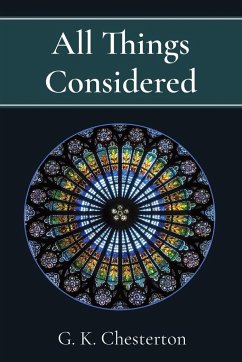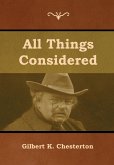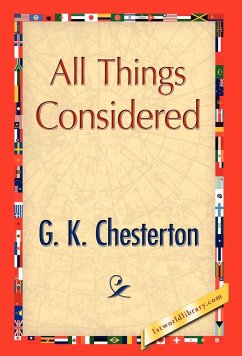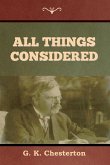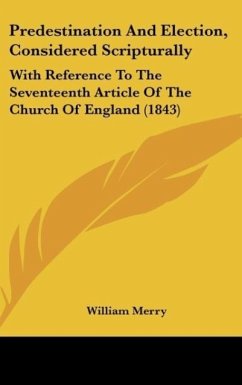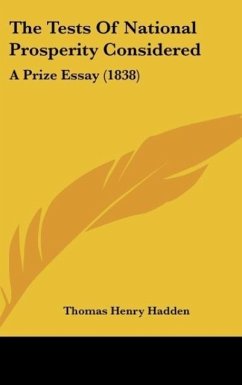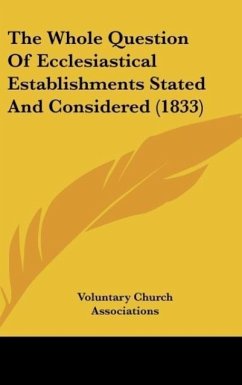Nobody wrote like G.K. Chesterton, who (as the book title indicates) took great joy in penning intelligent, thoughtful, and witty essays on all sorts of themes and things. Chesterton's tendency to cover a vast, irregular range of essay topics began with his first book of prose, "The Defendant," which delightfully addressed a diversity of normally ho-hum subjects ranging from skeletons and Chinese shepherdesses to baby worship, ugliness, and humility. "All Things Considered" is perhaps even more expansive, as Chesterton tries to defend common sense in a society that, generally speaking, has ceased to make sense at all. Readers who open the pages of Chesterton's book will find themselves spending time in another era, yet noting that politics and human nature haven't changed much since Edwardian times. Throughout the book, Chesterton managed to weave in some laugh-out-loud humor while bringing forth moral lessons in his own gentle way. Since Chesterton was writing to his contemporaries of the 19th and early 20th century, his books often reference people or ideas that, though well-known in his day, are pretty obscure today. Despite the passing of people and time, Chesterton's writings deal with ideas and controversies that remain amazingly relevant. Now considered a classic, "All Things Considered" is an excellent and entertaining read.
